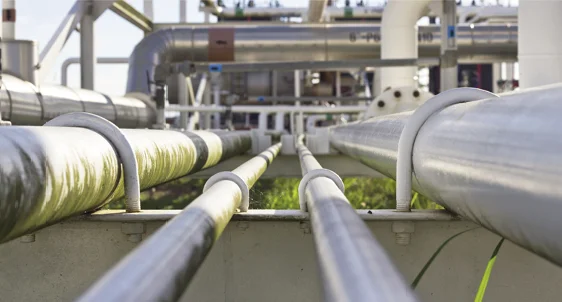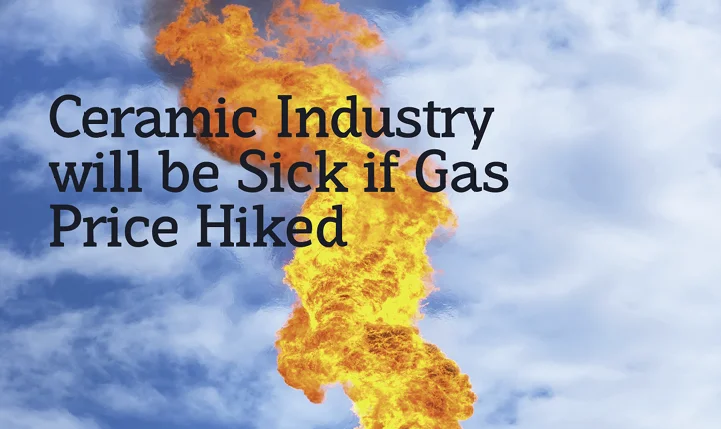
BCMEA REPORT
When the world economy is in turmoil due to the effects of the Corona virus and the Russia-Ukraine war, and the Bangladesh economy is in the grip of inflation and runs risk of recession but expecting to make a rebound, the process of raising gas and electricity prices has started in the country. A proposal is made to increase the price of gas by 117 per cent and that of electricity by 66 per cent. Six gas distribution companies have applied to the Bangladesh Energy Regulatory Commission (BERC) to raise the tariffs. The BERC held a public hearing on 21-24 March 2022. Its technical committee has approved a 20 per cent hike in gas price and a 45 per cent increase in electricity wholesale price.

However, the country’s industrial entrepreneurs said if the price of gas is raised again at this point in time, the country’s industrial sector will lose its competitiveness. Exports and employment will be challenged. The country will be filled with foreign products.
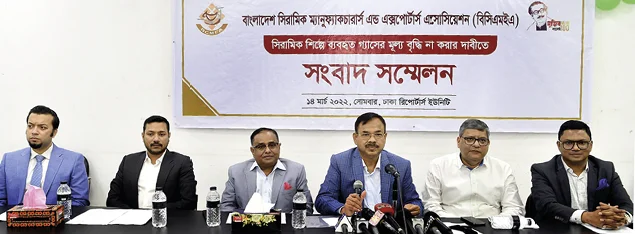
Mr. Irfan Uddin, General Secretary of the Bangladesh Ceramic Manufacturers and Exporters Association (BCMEA), vehemently opposed the move to increase gas prices, saying fuel costs account for 20 to 22 per cent of the total expenditure on ceramic products. Ceramic is essentially an energy-dependent and labour-intensive industry. Now, if the price of energy or gas increases, the cost of production will increase. But it will not be possible to sell ceramic products at higher prices. Such a situation will make many factories sick and reduce employment. Some may also default in repaying bank loans.
“This will be the eighth time in the last 10 years that the government has planned to increase gas prices by an average of 117 per cent. Another hike will raise production cost by 18-20 per cent.”
He said the price of gas had been increased more than once earlier with a pledge to resolve the gas crisis. In the past 10 years, the price of gas has been raised by 400 per cent, with promise every time of uninterrupted supply and proper pressure of gas. However, that did not happen so far. So, the gas price
should not be raised without implementing the pledge. Moreover, while Titas made a profit of Tk 1,500 crore in the last four years, there is no moral basis of increasing gas price. On the other hand, system loss of Titas is still 12%, where 1% system loss is equivalent to Taka 300 crore.
Mr. Irfan Uddin further said the country’s ceramic sector is paying more than Tk 1,200 crore in gas bills annually. For half of a day there is very low pressure of gas or even no gas and as a result, most of the kilns have to be shut down and running products in these kilns are wasted. According to the conditions, gas will be supplied at a pressure of 15 PSI, but it dropped from 3 to maximum 5 PSI after 11:00 am to 11:00 pm. Almost 50-60 per cent of the production capacity of many factories remain utilised due to the gas crisis. Titas is taking bills with ‘air’ instead of gas. In order to deal with this situation, Titas authorities are importing EVC (electronic valve control) meters but not supplying them to the factories. He said most of the factories had to set up captive power plants at a huge cost. The entrepreneur pointed out that some of investments are not coming to the country only because of the energy crisis.
Ceramic makers urge Govt. not to raise tariffs
The Bangladesh Ceramic Manufacturers and Exporters Association has urged the government not to hike the price of gas. “This will be the eighth time in the last 10 years that the government has planned to increase gas prices by an average of 117 per cent,” association president Mr. Shirajul Islam Mollah told a press conference recently. He urged the government not to increase the price of gas used in manufacturing ceramic items to protect the gas-dependent industry and thus help it stay competitive in the global market.
He mentioned that, in 2019, production cost of ceramic products per kilogram increased by 10-12 per cent on average as a result of about 33 per cent increase in gas prices. Another hike will raise production cost by 18-20 per cent and will also have a cascading effect on all areas, transportation cost, he added.
Mr Shirajul Islam said they need to keep kilns or chimneys turned on 24 hours a day in a ceramic factory. Even if gas pressure goes down frequently, they have to pay bills for full pressure. “We demand immediate installation of EVC meters to stop injustice in gas supply.” He said ceramics is one of Bangladesh’s largest industries.
“We need to keep kilns or chimneys turned on 24 hours a day in a ceramic factory. Even if gas pressure goes down frequently, we have to pay bills for the full pressure. We demand immediate installation of EVC meters to stop this injustice in gas supply.”
– Mr. Shirajul Islam Mollah
CAB calculations have shown that the price of gas can be reduced by 16 paisa more per unit.
There is scope to reduce gas price: CAB
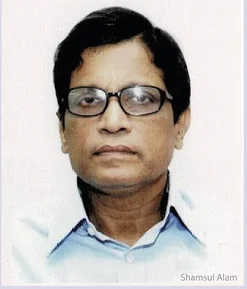 Professor Shamsul Alam, an energy adviser at the Consumers Association of Bangladesh (CAB), said the gas distribution companies were all profitable. At present the people cannot afford to pay extra. And companies have failed to justify price increases. CAB calculations have shown that the price of gas can be reduced by 16 paisa more per unit. The crisis is not over yet because of Covid-19. At a time when subsidies were supposed to increase, there was no provision for subsidies. About Tk 6,000 crore was supposed to be subsidised, but so far only Tk 3,000 crore has been given. Although the government has said no to subsidiesm the BERC technical committee unjustly calculated it and recommended a 20 per cent price increase.
Professor Shamsul Alam, an energy adviser at the Consumers Association of Bangladesh (CAB), said the gas distribution companies were all profitable. At present the people cannot afford to pay extra. And companies have failed to justify price increases. CAB calculations have shown that the price of gas can be reduced by 16 paisa more per unit. The crisis is not over yet because of Covid-19. At a time when subsidies were supposed to increase, there was no provision for subsidies. About Tk 6,000 crore was supposed to be subsidised, but so far only Tk 3,000 crore has been given. Although the government has said no to subsidiesm the BERC technical committee unjustly calculated it and recommended a 20 per cent price increase.
He said the government is taking a huge amount of money in various ways including tax and VAT. It is also forcing the decision of how much dividend a company will pay. They are making a profit and the companies are unreasonably demanding money from the customers in the name of project implementation. The responsibility of the government as the owner is to finance the implementation of the project. Subsidies should be considered as investments. He said the companies have proposed to increase the distribution margin for project implementation. Besides, Prime Minister Sheikh Hasina is for continuing subsidy for fuel oil, gas and electricity till inflation is brought under control.
VAT-tax be withdrawn from gas, electricity: BERC Chairman
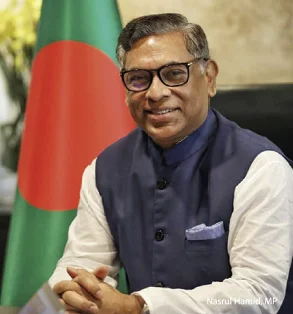
BERC Chairman Mr. Abdul Jalil said that the prime minister had directed the officials concerned to withdraw VAT-tax from essential products. As gas and electricity are essential items, the gas companies must argue with the National Board of Revenue (NBR) to withdraw VAT-tax. Currently, the NBR is collecting revenue of Tk 30,000 crore annually from the gas and power sector. All the companies in the gas sector have a deposit of Tk 12,000 crore.
He said no final decision could be taken on prices until the three sources subsidy, gas development fund and retention money were guaranteed. The price of gas depends largely on subsidies. According to the BERC, a subsidy of Tk 2.50 per cubic meter was given at the time of fixing the last gas price in 2019. This time, no decision is taken about subsidy. Therefore, the BERC is waiting to see the national budget proposal.
According to BERC sources, 46 paisa per cubic meter is deducted from the customer for c’evelopment in the gas sector. The fund to which it is added is called Cas Development Fund or GDF. The BERC has asked Petrobangla for Tk 4,000 crore from GDF. It has also demanded TK 3,000 crore from the emergency money (retention money) deposited with the gas companies. The commission did not receive any response from the concerned people regarding these payments.
On June 30, 2019, BERC increased the average price of gas by 33 per cent. At the domestic consumer level, the price of gas per cubic meter increased from Tk 7.38 to Tk 9.80. And at the industrial level the rate is Tk 13.85. Businesses and consumer rights groups have cautioned that increase in the price of gas in this volatile market would make life miserable.
Gas price will depend on subsidy: Minister
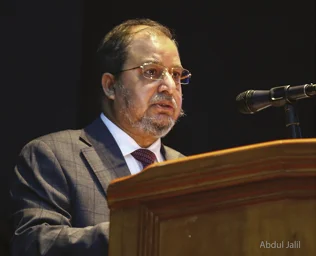
State Minister for Power, Energy and Mineral Resources Mr. Nasrul Hamid said gas prices would depend on subsidies from the finance ministry. The government will not take any decision on major price hike. He observed that the government has not increased the price of gas and electricity, only adjustments were made. He said the BERC knows whether the price of gas will go up. “We want to keep everything stable. How much the government will be able to bear now as a result of the rise in global liquid fuel prices is a matter for consideration,” he said adding that his ministry had asked the finance ministry to increase the subsidy.
The govt. is looking for new fuels. The feasibility of generating electricity with new fuel ‘Hydrogen’ will be surveyed experimentally across the country. – Mr. Nasrul Hamid, MP
Mr. Hamid said, “Today the price of oil has crossed US$150. The US$300 LNG cargo is now 1,200. The energy situation in the world is now volatile. India has doubled the price of electricity. Oil prices have risen also. Bangladesh is still stable.” The minister added that the government is looking for new fuels. The feasibility of generating electricity with new fuel ‘Hydrogen’ will be surveyed experimentally across the country. The state minister said that the government is also making a policy in this regard.






